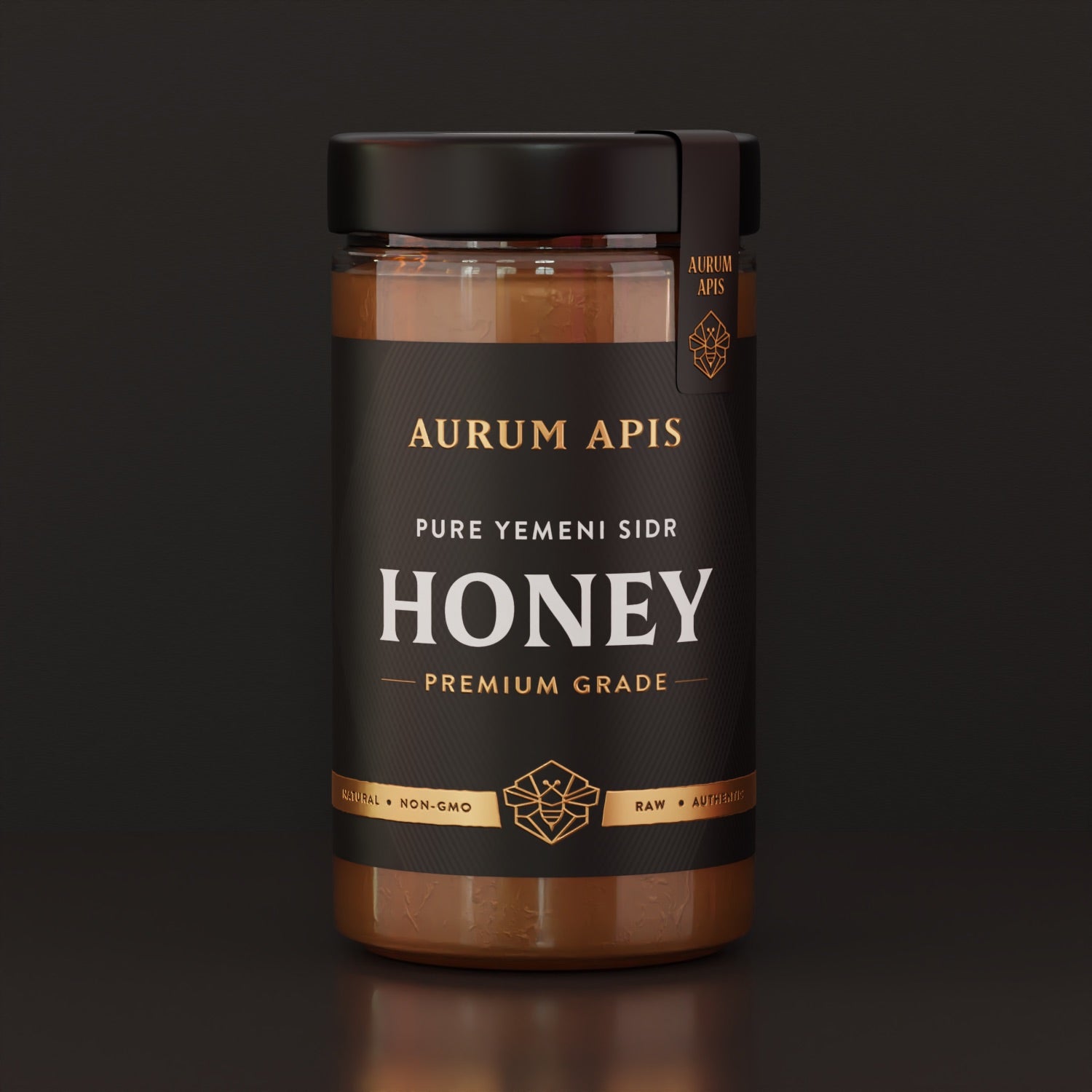Introduction
Honey has been an integral part of Arab culture for centuries, revered not just as a sweetener but as a symbol of health, healing, and prosperity. From ancient Arabian civilizations to modern luxury markets, honey has remained a prized possession in the Middle East. Today, premium varieties like Yemeni Sidr honey are sought after worldwide, bridging the gap between tradition and exclusivity. This article explores how honey has evolved in the Arab world, from a sacred tradition to a modern luxury commodity.
Honey in Ancient Arabian Civilizations
The story of honey in the Arab world dates back thousands of years. In the ancient Arabian Peninsula, honey was not only a staple in daily life but also a highly valued trade commodity.
- Early Beekeeping Practices: Ancient Arab beekeepers developed sophisticated techniques to harvest honey while preserving the health of the bees and the environment.
- Historical References: Arabic texts from medieval times document honey’s role in trade, nutrition, and medicine.
- Honey in Arab Diets: Honey was a key ingredient in traditional foods, often combined with dates, milk, and nuts for a nourishing meal.
Honey in Islamic Teachings and Prophetic Medicine
Islamic tradition places great emphasis on the healing properties of honey. It is mentioned in both the Quran and Hadiths, reinforcing its significance in spiritual and physical well-being.
- Quranic Reference: “There emerges from their bellies a drink, varying in colors, in which there is healing for people.” (Surah An-Nahl 16:69)
- Hadiths on Honey: Prophet Muhammad (PBUH) frequently recommended honey for health, digestion, and overall wellness.
- Spiritual and Medicinal Uses: Honey was used in prophetic medicine to treat ailments, boost immunity, and enhance vitality.
The Role of Honey in Traditional Arab Medicine
Before modern pharmaceuticals, Arab healers and herbalists relied on honey for its powerful medicinal properties.
- Used as a Natural Antibiotic: Raw honey was applied to wounds and infections for its antibacterial effects.
- Combined with Herbs: Honey was mixed with black seed, ginger, and saffron for enhanced healing.
- Traditional Remedies: Ancient Arab remedies included honey-infused tonics for respiratory and digestive health.
The Symbolism of Honey in Arab Hospitality and Culture
Hospitality is a cornerstone of Arab culture, and honey holds a special place in this tradition.
- A Gesture of Generosity: Offering guests honey symbolizes warmth, wealth, and hospitality.
- Honey in Celebrations: Used in special events such as weddings, Eid celebrations, and religious feasts.
- Middle Eastern Desserts: Honey is a key ingredient in sweets like Baklava, Qatayef, and Kunafa.
Yemeni Sidr Honey: The Crown Jewel of Arab Honey
Among all varieties, Yemeni Sidr honey is considered the most luxurious and medicinally potent.
- Unique Origins: Sourced from the ancient Sidr tree (Ziziphus spina-christi), known for its healing properties.
- Traditional Harvesting Methods: Hand-collected using centuries-old techniques to preserve purity.
- Global Demand: Sought after by wellness enthusiasts, gourmet chefs, and luxury connoisseurs worldwide.
Modern Luxury: The Evolution of Honey in the Arab World
Today, honey has transitioned from an ancient remedy to a symbol of modern luxury in the Gulf region.
- The Rise of Premium Honey Brands: Companies like Aurum Apis are redefining quality with organic, lab-tested honey.
- Artisanal and Organic Trends: Growing demand for ethically sourced and pesticide-free honey.
- Status Symbol in High-End Markets: Luxury honey is now featured in gourmet restaurants and upscale gift collections.
Health and Wellness: The Continued Relevance of Honey
Modern science continues to confirm what Arab traditions have long known—honey is a nutritional powerhouse.
- Boosts Immunity: Rich in antioxidants and antimicrobial properties.
- Supports Digestive Health: Aids gut health and soothes digestive issues.
- Used in Skincare: Applied for anti-aging, hydration, and wound healing.
Sustainable Beekeeping: Preserving a Timeless Tradition
As the demand for premium honey grows, so does the responsibility to protect traditional beekeeping practices.
- Challenges Facing Beekeepers: Climate change, habitat loss, and unethical honey production threaten natural honey sources.
- Ethical Beekeeping Practices: Brands like Aurum Apis are committed to sustainability, ensuring responsible honey harvesting.
- Preserving Cultural Heritage: Investing in traditional beekeeping supports local communities and keeps ancient knowledge alive.
Conclusion
From ancient Arabian civilizations to modern luxury markets, honey has remained a treasured commodity in the Arab world. Whether valued for its religious significance, healing properties, or status as a premium product, honey continues to connect the past with the present. For those seeking authentic, high-quality honey, Aurum Apis offers the perfect blend of heritage, purity, and luxury.
Experience the Timeless Elegance of Honey with Aurum Apis Today!
---
FAQs
1. Why is honey important in Arab culture?
Honey is valued for its spiritual, medicinal, and cultural significance, playing a central role in Islamic teachings, hospitality, and traditional medicine.
2. What makes Yemeni Sidr honey so special?
Yemeni Sidr honey is known for its unique flavor, medicinal properties, and traditional harvesting methods, making it one of the most sought-after honey varieties in the world.
3. How was honey used in ancient Arab medicine?
Ancient Arab healers combined honey with herbs, black seed, and saffron to create natural remedies for digestion, immunity, and skin care.
4. Is honey still considered a luxury product in the Middle East?
Yes! Premium honey, especially rare varieties like Sidr honey, is seen as a luxury item, often gifted in elegant packaging and served in high-end dining experiences.
5. How does Aurum Apis ensure the purity of its honey?
Aurum Apis sources honey from pristine regions, follows traditional harvesting methods, and conducts strict lab testing to guarantee 100% organic and raw honey.



